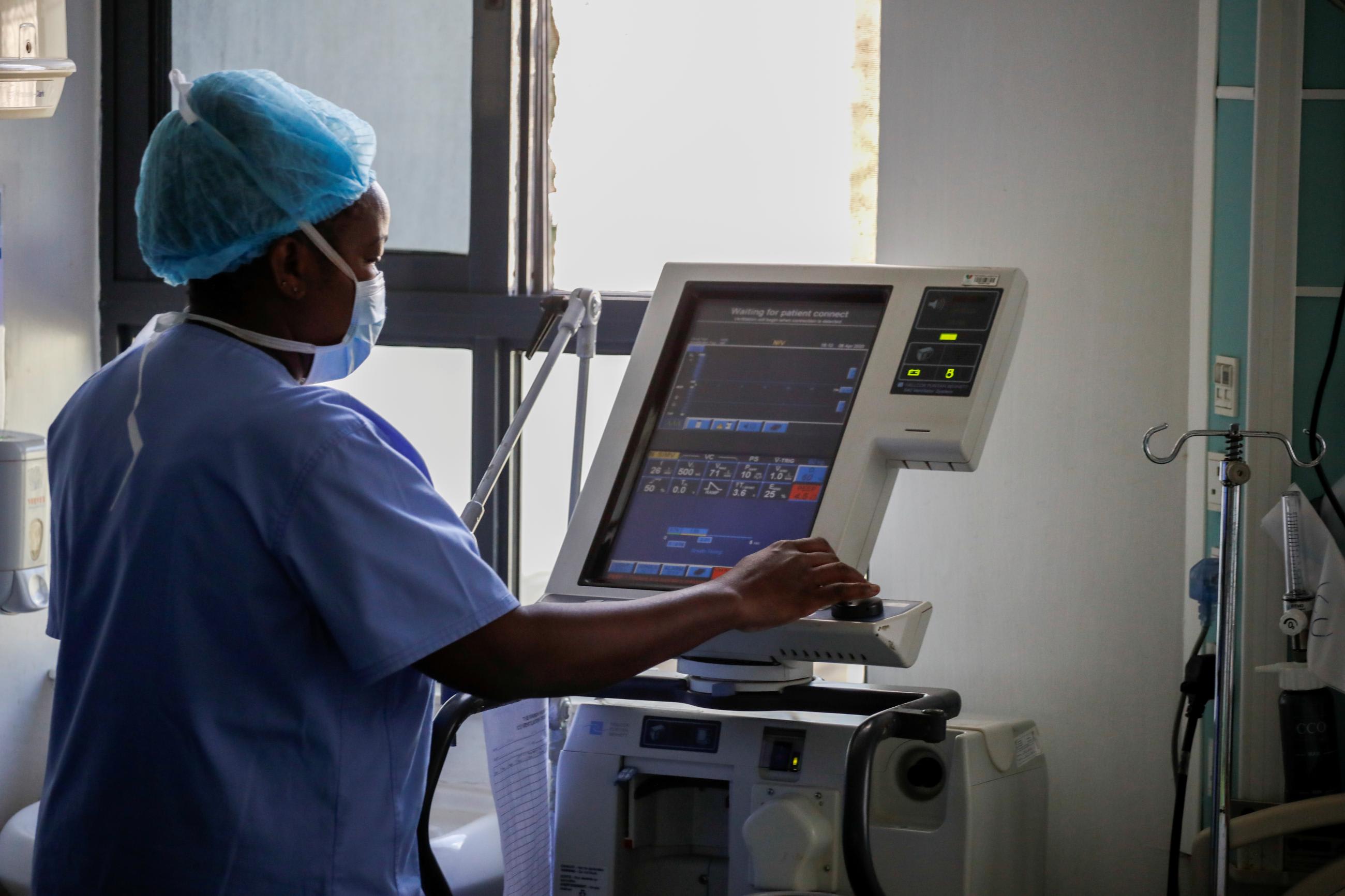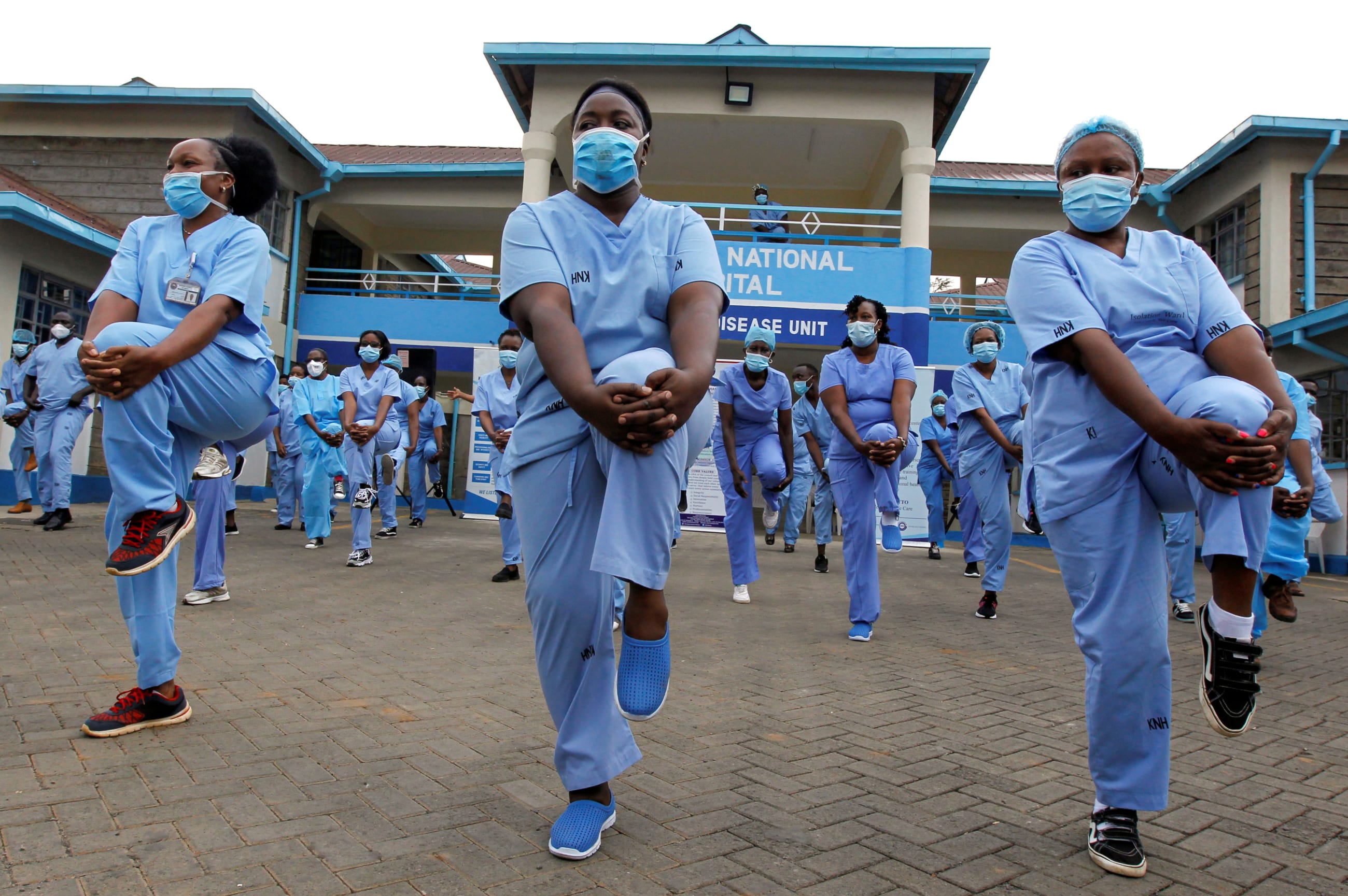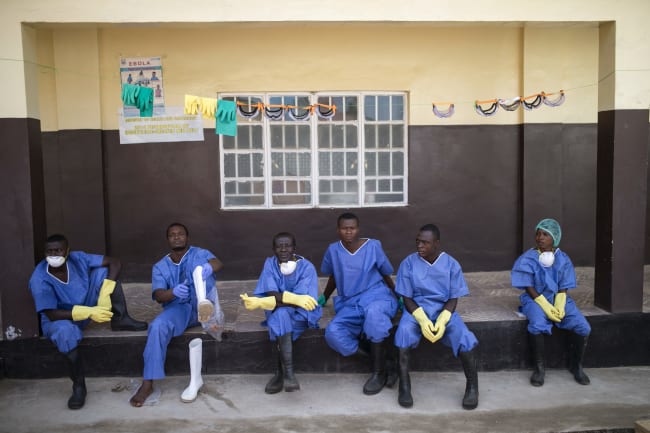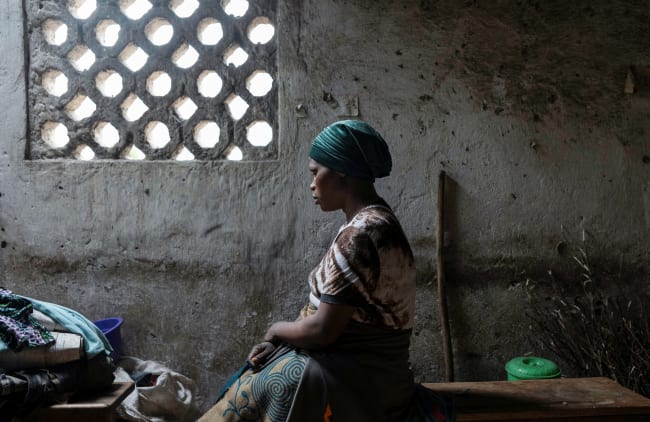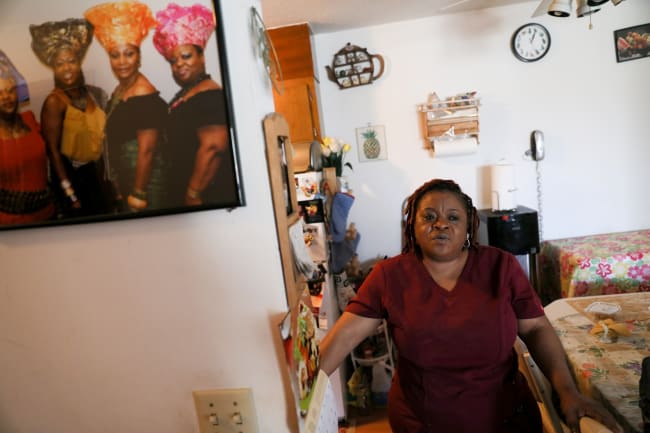A growing wave of Kenyan health workers to hospitals and health-care centers abroad presents a mixed bag of fortunes for the country. Health workers are taking jobs overseas that provide better career growth, working conditions, and salaries. According to Kenya's Ministry of Health, this can contribute to the number of remittances to the country and increase the foreign exchange rate, strengthening the overall economy. On the other hand, policy experts are asking for stricter emigration policies to prevent a shortfall of qualified personnel.
Since the 1990s, Kenyan health professionals have been emigrating at a higher rate than previously seen. A study by the Regional Network for Equity in Health in East and Southern Africa (EQUINET) traced the genesis of this departure to this period, which was marked by structural adjustment programs that the Kenyan government signed with the World Bank and International Monetary Fund (IMF), which led to a freeze on recruitment for the public health sector and mandatory staff retrenchments.
"Around 4,000 doctors and nurses are leaving Kenya every year," Ouma Oluga, former secretary general of the Kenya Medical Practitioners, Pharmacists and Dentists' Union, told TGH. A 2023 report by the country's Ministry of Health showed that up to 64.4% of health professionals had expressed a desire to leave the country for greener pastures abroad.
In response, government officials have cautioned against the looming shortages of medical personnel.
The Council of Governors, the leadership of the country's 47 semi-autonomous counties, recently illustrated the extent of the challenges posed by health workers leaving. Governor Muthomi Njuki acknowledged in February that the government struggles to pay competitive wages.
"While we are complaining [that] we're having a brain drain of doctors and nurses to the Western world, we as a government are not able to employ them because we do not have the resources," Njuki said.
Government officials have cautioned against the looming shortages of medical personnel
It is a precarious balancing act for the government, which seeks to maintain healthy medic-to-population ratios while addressing the country's job shortage, which has been attributed to various factors including population growth (particularly among the youth against available jobs), slow economic growth, mismatched skills, and job cuts resulting from adaptation of technology and high costs of production. To accomplish this, the government has been actively facilitating the outflow of its labor, including its health personnel, to help contain its surging unemployment rate, which according to the World Bank was 5.7% in 2023.
President William Ruto highlighted that challenge during this year's Labor Day celebrations on May 1, saying that Kenya can absorb only 200,000 of the 1 million qualified workers who enter the job market annually.
"Labor migration . . . is a critical component of our socioeconomic development, benefiting both Kenya and countries that welcome our workers. This is the reason why we continue to negotiate bilateral labor agreements to facilitate safe and orderly labor migration, protecting Kenyan workers' rights and facilitating their access to international job markets," Ruto said.
He also announced he was nearing the conclusion of several bilateral agreements with countries, including Austria, Germany, Saudi Arabia, and the United Kingdom (UK).
Kenya acknowledges that it cannot fully absorb its health-care personnel who graduate from its colleges and universities. For example, the annual number of newly qualified nurses entering the workforce increased by 68.5% from 1,745 in 2006 to 2,941 in 2015, according to a 2015 report by the Health Ministry showing the status of health-care professionals in Kenya. The report also highlighted a surge in the annual number of newly qualified doctors entering the workforce, which had more than doubled from 285 in 2006 to 611 in 2015 at growth comes with consequences.
In 2024, the Council of Governors reported 14 medical doctors per 100,000 people countrywide in Kenya. OECD data from 2022 showed that most countries—save India, Indonesia, and South Africa, all members of the Organization for Economic Cooperation and Development—have a ratio above 21 per 100,000. The World Health Organization (WHO) recommends a minimum of 21.7 doctors and 228 nurses per 100,000.
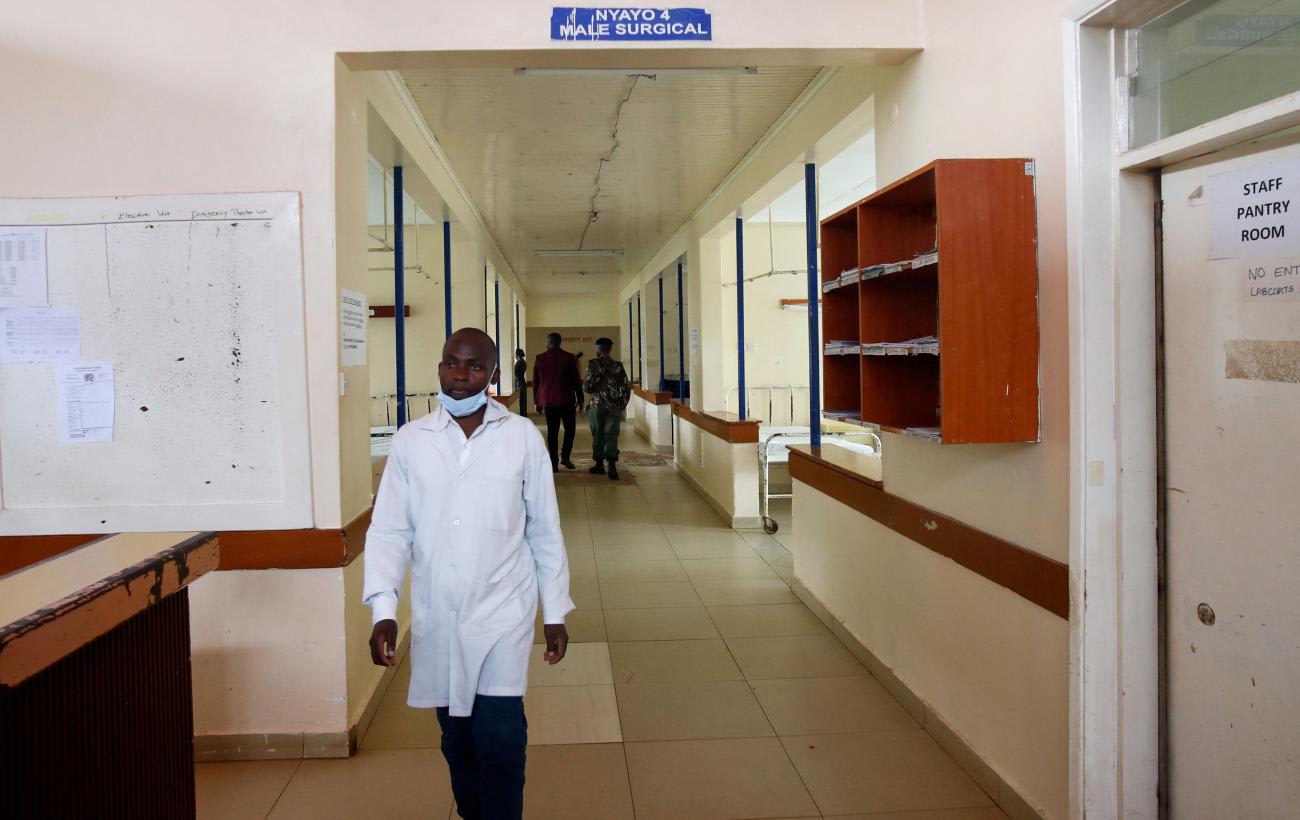
Emigration as a Positive
Although emigration presents the challenge of a dwindling workforce, state officials have praised and defended the migration as a positive step toward providing jobs to the growing health-care workforce, adding that this will not disrupt local health-care services.
One of the government's recent diaspora job postings advertised more than 2,000 nursing jobs in Gulf countries.
By April 2024, 280 nurses had migrated to the UK under the Kenya-UK Bilateral Agreement, the Health Ministry saying that 200 more were awaiting placement. The first batch of 19 nurses left the country for the UK in June 2022, less than a year after Kenya and the UK signed the bilateral agreement for collaboration on the health-care workforce on July 29, 2021.
To facilitate the emigration of nurses, the government in January launched the Pearson Virtual University Enterprise Test Centre in Nairobi. The center administers the National Council Licensure Examination for nursing licensure in the United States, Australia, and Canada. That development marked a significant milestone for Kenyan nurses seeking to emigrate to top markets abroad. Previously, Kenyan nurses had to take the exams in India or South Africa.
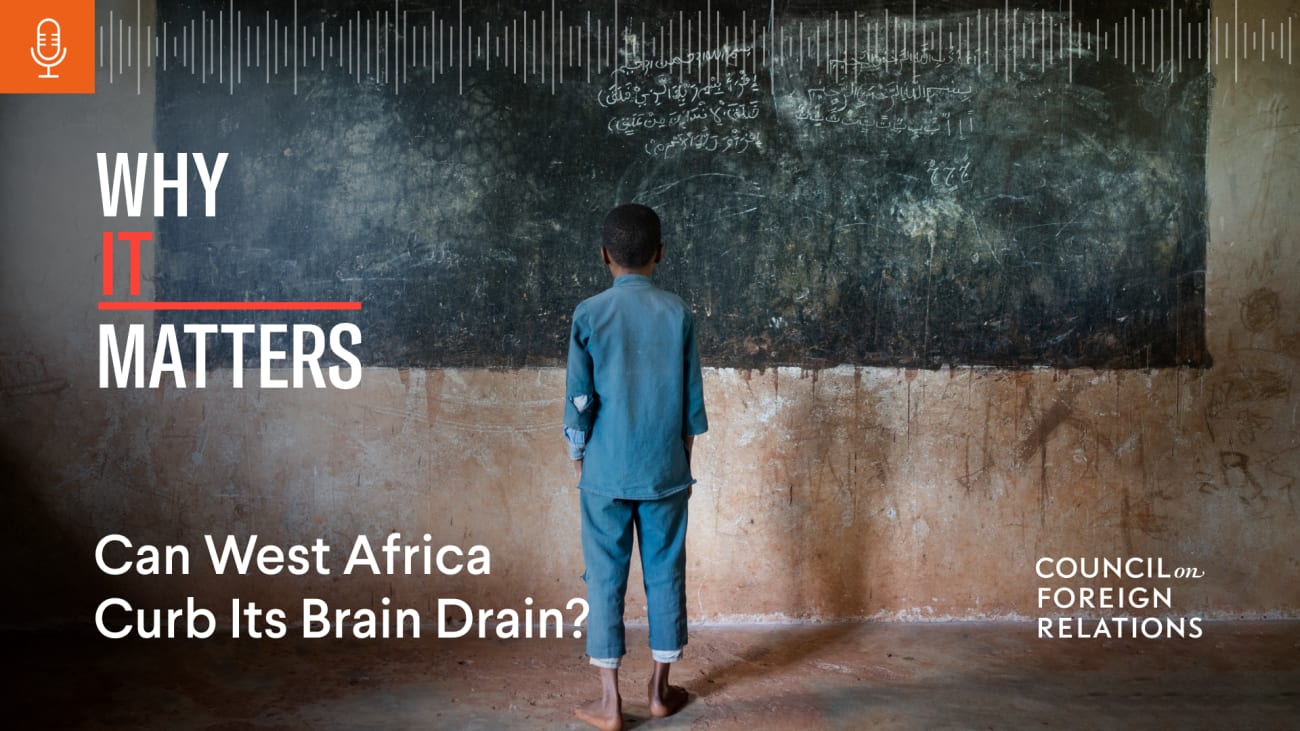
Diaspora remittances have taken a focal point in the government's broader labor migration programs, including for health-care professionals leaving the country.
"The more Kenyans get engaged out there, and the more we get in terms of remittances, those remittances come back and create jobs here. Their remittances are running factories here and enabling agriculture to grow in different parts of the country," said the Honorable Musalia Mudavadi, cabinet secretary for Foreign and Diaspora Affairs.
Experts, however, have cautioned against the impact of the brain drain on local health-care systems. Governor Njuki described the export of health workers as a "paradox because we are giving away the crème de la crème."
Oluga said the migration of Kenyan health workers has more cons than pros. For starters, the recruiting countries select the most experienced.
Experts have cautioned against the impact of the brain drain on local health-care systems
"From my experience as director of health, the nurses who are leaving are usually the experienced ones. That weakens the health-care system because the novice nurses are left without experienced hands to guide them," said Oluga. "Most health-care systems where these workers are going, such as in the UK and the United States, are developed."
Oluga said this brain drain in theory is a way of developing their skills so that they can come back and participate in developing the systems in their home countries. The problem in practice is that they rarely come back, he said.
Oluga, who contributed to the fourth round of the review of the WHO's code of practice for international recruitment of health workers, said that the weaknesses of health-care systems in Kenya discourage many from returning after serving abroad. The reasons that prompted them to leave, however, are not being addressed.
As an intervention, Oluga revealed that he is developing a framework to engage with diaspora health workers on how they can participate in, navigate, and strengthen health-care systems in Africa. The framework, he said, would be voluntary and knowledge-based and would offer an array of choices.
"We want to drive a critical mass of health workers to return home and set up mentorship programs, [undertake] proper research, and support health-care institutions here. I am interested in connecting with diaspora health workers who want to participate in improving their health-care systems back home."
